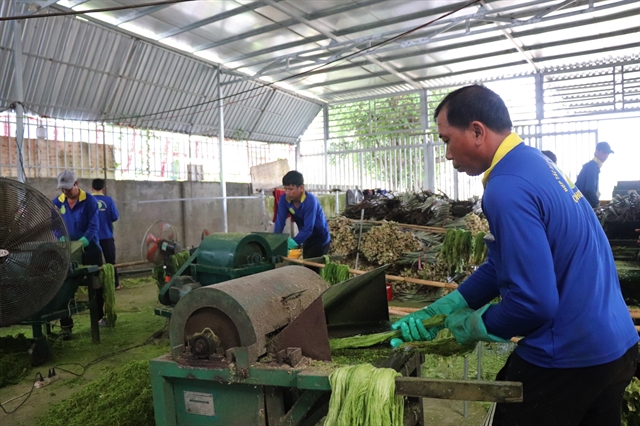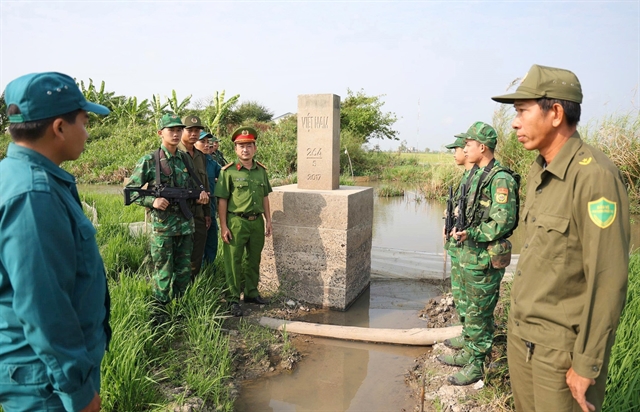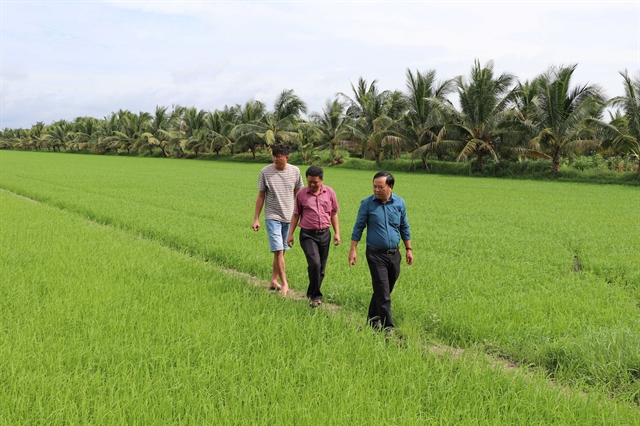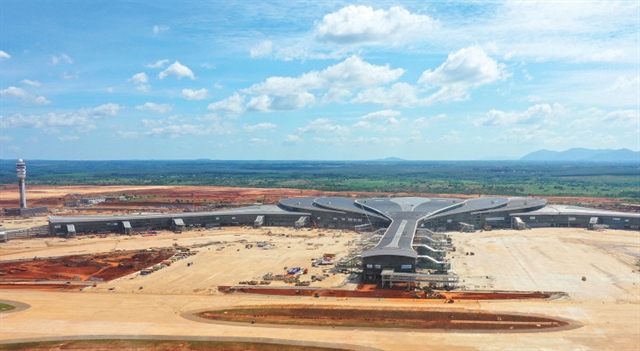 Society
Society

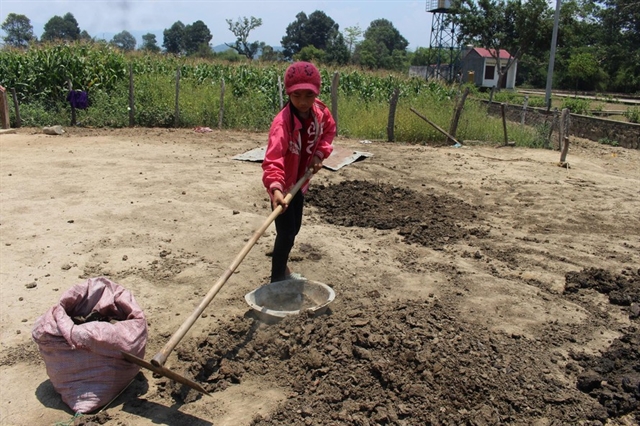
|
| A girl dries the cow manure in Krông Bông District, Đắk Lắk Province. — Photo tienphong.vn |
ĐẮK LẮK — It’s sunny and hot in Đắk Lắk and the wind is blowing hot air directly at the people stooped-over in the fields, groping for buffalo and cow dung or walking quickly following a herd of cows and collecting their dung as they do.
One of those stooped-over, searching for cow feces in the middle of a field of straw is 61 year-old, H'Uyen, from Yang Reh Commune.
"In the past, people here only relied on rice grains,” she tells the Tiền Phong (Vanguard) newspaper, reaching her hand to quickly wipe the sweat rolling down her tanned face. “For more than ten years, people have been collecting cow dung to earn money. Here everyone tries to take advantage of the sunny and dry weather.”
“Before, when I went to the field I would collect up two or three full bags. Now, people graze cows far up on the hillside and old people like me are not strong enough to climb. Now I collect just one bag full, that I sell for VNĐ35,000-40,000 (US$1.5-1.7).”
Every day, five members of H'Thiêu's family in Yang Reh Commune get up early to walk along the fields, climb the hills and follow the footsteps of cows to collect manure.
“People can earn more if they go far away, but it is hard to carry back. For people who collect dung, their biggest fear is the rain. When it rains, the feces don't dry and instead absorb water which makes them heavy and smell bad," she says.
Collecting dung has helped H'Thiêu's family to become more financially stable. After nearly six months of collecting manure, her family has an income of nearly VNĐ35 million ($1,500). This is quite a big amount of money for a farming family in a remote area.
“In recent years, demand for buffalo and cow dung has risen sharply and collectors are able to sell directly to buyers and immediately receive payment. At first, many people are shy, but this profession is viable and honest," says H'Thiêu.
H'Doan, 65, also from Yang Reh Commune, has a big, bright smile.
"Today, I picked up nearly a whole bag, dried it in the sun, and sold it. It is hard work but the income is good.”
H'Doan has been doing this work for more than ten years. She says some days she picks up cow dung until her legs won’t work anymore. She can earn nearly VNĐ50,000 ($2.1) every day to cover her living expenses.
Cow dung sold well
Y Buyn, 10, said that every day, she would pick up more than half a bag to have more money to buy books.
"I followed my parents into the fields to clear grass and cultivate corn, so I don’t find collecting dung to be hard work," Buyn said innocently.
Hoàng Văn Nhâm, from Ia Lơi Commune, who owns 30 cows, said that in the past, cow dung was all over the roads. It smelled bad and polluted the waterways.
Now that many people buy cow dung to fertilise coffee trees, the price of manure has increased. Subsequently, the number of people collecting manure has also increased. Wherever there is cattle grazing, people come to collect their dung, cleaning the roads in the process.
Nguyễn Cao Cương, owner of a coffee farm in Cư M'gar District, has ordered several hundred bags of the cow dung and says the quality is excellent.
“It fertilises the coffee trees and helps the plants grow better and attracts less pests,” he said.
Nguyễn Minh Mẫn, from Yang Reh Commune, has 13-14 years of experience in buying and selling cow dung.
“The owners of coffee and pepper gardens often order cow manure in large quantities. Every day, I go to different villages in the district and neighbouring districts to collect the cow dung. This season, I buy about 40-50 bags per day. But sometimes there is not enough manure to sell.” — VNS


